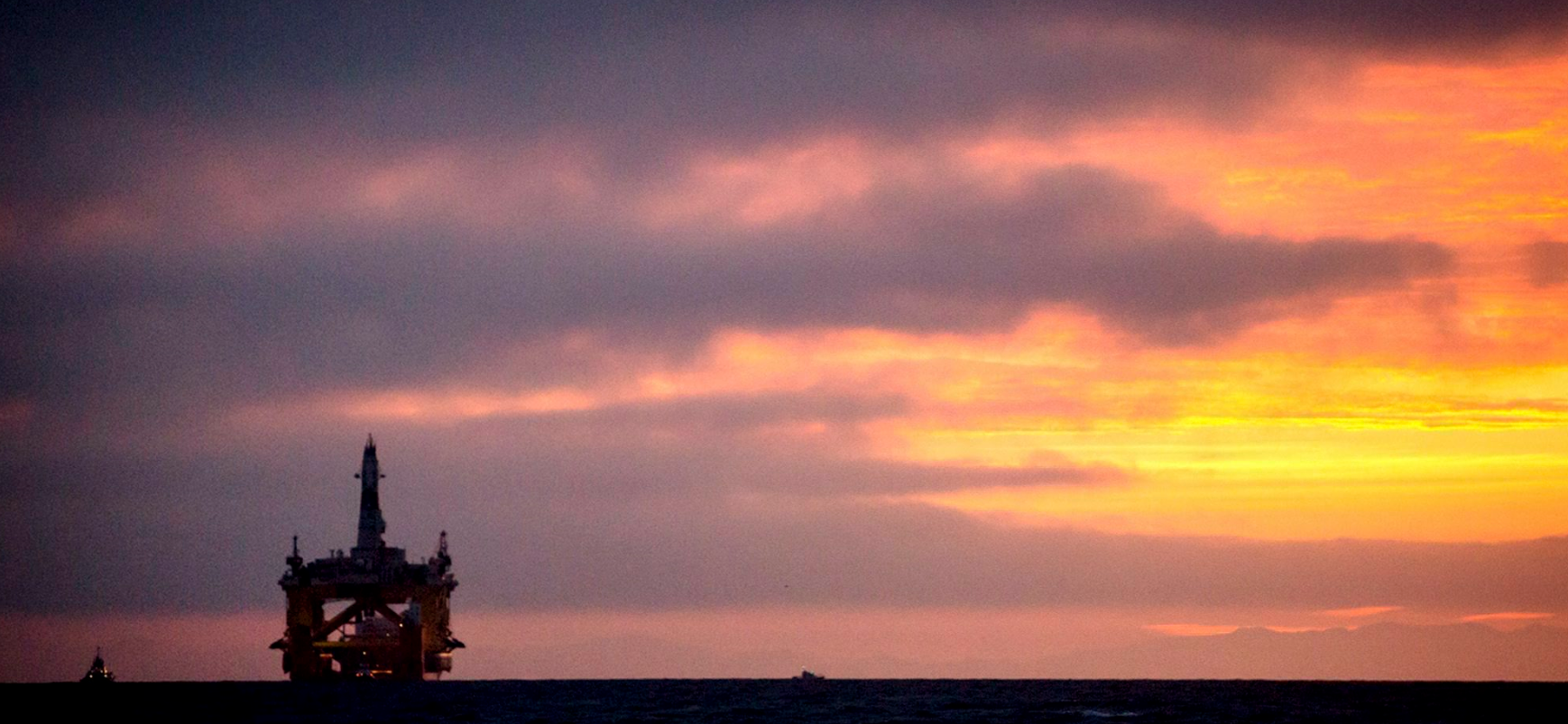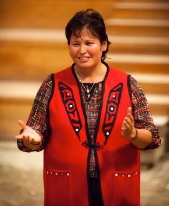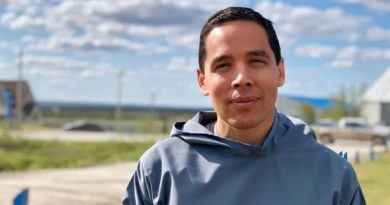Arctic drilling doesn’t just effect the Arctic say Greenpeace campaign participants

Representatives from six of Canada’s First Nations are currently taking part in a Greenpeace campaign with a message that Arctic drilling has the potential to negatively impact communities far beyond the North.
“We know that the ongoing use of oil as a source of fuel is perpetuating global warming or climatic change which effects all citizens of North America, and the world, including my small little community,” said Candace Campo, a business owner from the Sechelt First Nation in the western Canadian province of British Columbia.
Campo is one of six First Nations participants involved in the 10-day “People vs. Oil” tour aboard the the Greenpeace ship MY Esperanza. The campaign launched on May 19th and is stopping at coastal B.C. communities to talk about concerns over Arctic drilling.
Shell project reignites concerns
Royal Dutch Shell received conditional approval from the U.S. Bureau of Ocean Energy Management (BOEM) to drill in the Chukchi Sea off the coast of Alaska this summer.
It’s a controversial decision sometimes pitting those in the North who welcome the potential for jobs, infrastructure and economic development such projects bring, against those who say the environmental risks of Arctic drilling are too high.

Campo says even though her community is located on the southwest coast of B.C., the potential for more direct impact from increased shipping activity to and from the Chukchi site, is raising concerns.
“The transport of oil down the coastline through British Columbia to the United States, that’s what is slated,” she said. “If we were to have an oil spill in the Salish Sea, that could very much impact my own community.”
Decision ‘disturbing’ to First Nations says campaign participant
In a press release earlier this month, the BOEM said they had carefully weighed the safety issues around giving Shell the go-ahead.
“We have taken a thoughtful approach to carefully considering potential exploration in the Chukchi Sea, recognizing the significant environmental, social and ecological resources in the region and establishing high standards for the protection of this critical ecosystem, our Arctic communities, and the subsistence needs and cultural traditions of Alaska Natives,” said BOEM Director Abigail Ross Hopper. “As we move forward, any offshore exploratory activities will continue to be subject to rigorous safety standards.”
But campaign participants said this was not enough.
Victor Thompson, a musician and cultural singer from B.C.’s Haida First Nation, also a participant in the Greenpeace tour, said his first reaction to the the Chukchi Sea drilling approval announcement was one of being ‘disturbed.’
“We can all fight as one against the oil rigs,” Thompson said. “If there’s an oil spill on Haida Gwaii it can wash up on our shores and wreck our traditional ways of living.”
For more of Eye on the Arctic‘s conversation with Candace Campo, listen here:
Development vs environment
As an entrepreneur with her own eco tourism business, Campo says she empathizes with Arctic peoples and the complex issues they negotiate when weighing much needed economic opportunities with environmental protection. But she says that that the longterm consequences of an environmental disaster like the Exxon Valdez in the Arctic are too serious to ignore.
“In no way would I try to minimize any challenge that the northern First Nations communities have in acquiring employment for their people,” she said. “But I also know that for all of us, in B.C. or the Arctic, requiring employment related to the oil industry is a Catch-22. ”
Write to Eilís Quinn at eilis.quinn(at)cbc.ca
Related stories from around the North:
Canada: Canada ponders exceptions to relief well rule for Arctic oil drilling, Alaska Dispatch
Finland: Finns still sharply divided over wind power, Yle News
Greenland: Arctic oil and gas must stay in ground to restrict warming to 2°C says study, Blog by Mia Bennett
Iceland: From Arctic Circle 2013-2014, a big drop in the price of oil, Blog by Mia Bennett
Norway: Norway surpasses Russia as top gas supplier, Barents Observer
Russia: Parallels drawn between space race and Arctic offshore development, Blog by Mia Bennett
United States: Oil & gas revenue-sharing is ‘simple fairness,’ says Alaska senator, Blog by Mia Bennett


